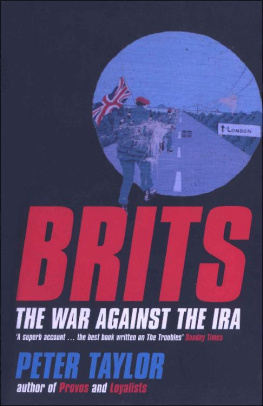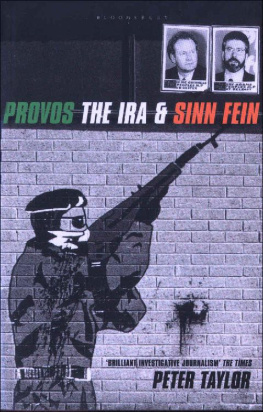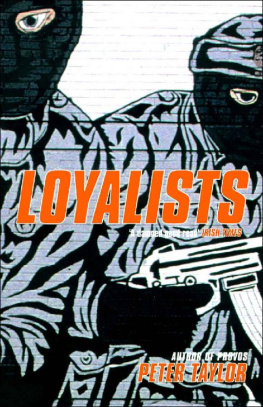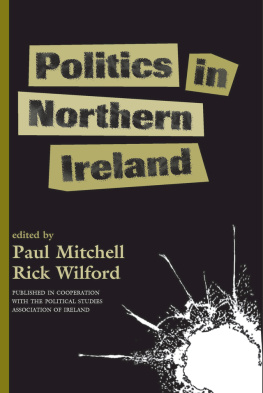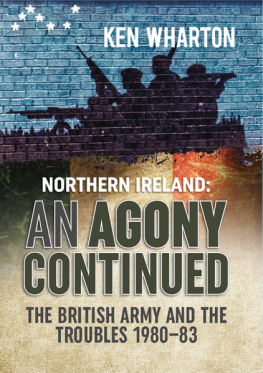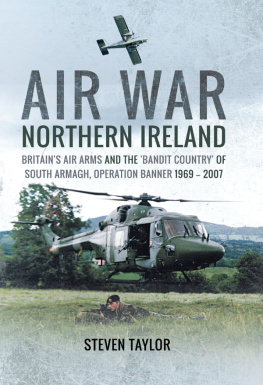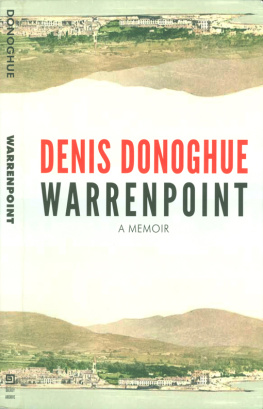Peter Taylor - Brits: The War Against The IRA
Here you can read online Peter Taylor - Brits: The War Against The IRA full text of the book (entire story) in english for free. Download pdf and epub, get meaning, cover and reviews about this ebook. year: 2012, publisher: Bloomsbury Publishing PLC, genre: History. Description of the work, (preface) as well as reviews are available. Best literature library LitArk.com created for fans of good reading and offers a wide selection of genres:
Romance novel
Science fiction
Adventure
Detective
Science
History
Home and family
Prose
Art
Politics
Computer
Non-fiction
Religion
Business
Children
Humor
Choose a favorite category and find really read worthwhile books. Enjoy immersion in the world of imagination, feel the emotions of the characters or learn something new for yourself, make an fascinating discovery.
- Book:Brits: The War Against The IRA
- Author:
- Publisher:Bloomsbury Publishing PLC
- Genre:
- Year:2012
- Rating:5 / 5
- Favourites:Add to favourites
- Your mark:
- 100
- 1
- 2
- 3
- 4
- 5
Brits: The War Against The IRA: summary, description and annotation
We offer to read an annotation, description, summary or preface (depends on what the author of the book "Brits: The War Against The IRA" wrote himself). If you haven't found the necessary information about the book — write in the comments, we will try to find it.
Brits: The War Against The IRA — read online for free the complete book (whole text) full work
Below is the text of the book, divided by pages. System saving the place of the last page read, allows you to conveniently read the book "Brits: The War Against The IRA" online for free, without having to search again every time where you left off. Put a bookmark, and you can go to the page where you finished reading at any time.
Font size:
Interval:
Bookmark:

To Sue, Ben and Sam
FranksStory
14 Intelligence Company known as the Detachment or Det is the armys most secret undercover surveillance unit in Northern Ireland, so secret that it doesnt exist. Its operators have no names, identities or numbers. They are the eyes and ears of the SAS and the RUCs Special Branch the men and women trained to gather vital intelligence by breaking into IRA mens houses, bugging or jarking IRA weapons and vehicles and working undercover at huge personal risk. Regular soldiers call them The Muppets because of their various disguises. Since its formation in 1973, 14 Intelligence Companys role in the war against the IRA has been critical, latterly playing a vital and unacknowledged part in helping to bring the IRA to the negotiating table.
Frank is the only operator to have survived capture by the IRA although he stopped three bullets in the process. He has no doubt about the Dets impact on the conflict. It got to the stage where the IRA couldnt come outside their front door without being put under surveillance and tracked. We knew where they were going, what vehicles they were using, where they were getting their weapons from and where they were hiding them. By the end of the 1980s, they didnt know which way to turn because we were there all the time. Technology gave us the upper hand even more. We were able to watch them from a great distance, photograph what they were doing and listen to them. We were a very small organization but we gave an awful lot. Over the years my particular unit lost nine operators, but we accounted for a lot more of the enemy. The irony is that because 14 Intelligence Companys existence and activities are so sensitive, neither the army nor the MOD can publicly pay tribute to it.
Hanging on Franks wall is a graphic souvenir of his many years with the Det in Northern Ireland. It shows four men wearing balaclavas, bomber jackets and trainers emerging from an old VW Passat, brandishing a Browning 9mm revolver, a machine pistol and an HK 53 assault rifle. Inscribed in a circle round them is the Dets unofficial motto: Go out into the highways and hedges, and compel them to come in. Theres little doubt who they are. When I asked where the words came from, Frank left the room and returned with a large family Bible open at Luke 14 verse 23. It wasnt quite the context that Luke intended.
Frank first served in Northern Ireland in the late 1970s as part of the regular army but he grew bored and frustrated just wandering around, showing the flag, offering yourself as an occasional target and achieving very little. He says he felt like a mushroom, being kept in the dark and never really knowing what was going on. On the rare occasions when soldiers did find a weapon, he felt they were being given it by other agencies just to keep them happy. Clearly his frustration showed as did his potential. He finally escaped from the mind-numbing routine and became part of a Close Observation Platoon (COP), trained by the SAS, which was more exciting than engaging the locals in polite conversation. But he still wasnt satisfied and wanted to be closer to the action, to the sharp end of the war. Some months later, an instructor asked him if he might be interested in a more specialist job, more to the cutting edge. Frank decided he had nothing to lose and applied for selection, although he had no clear idea of what he was being selected for or what the specialist unit was called. He discussed it with his father who advised him, Keep your mouth shut, do your best and get on with it.
He arrived at a secret location in England and was shown into a hut with a blackboard on the wall. Frank read the chalked-up words. Basically it was a declaration that you gave up all your human rights and they could do what they wanted with you. Your rank meant nothing and your name meant nothing. You were just a number from then on. He was given a piece of paper to sign, signifying that he had read and understood the score. Then the psychological deconstruction began. Theyre only looking for a certain kind of person and they start weeding them out from the word go. Any Walter Mittys and James Bonds are soon on their way. Each potential recruit had been given a kit list of things to bring. If he or she arrived with anything extra, like love-letters, they were immediately taken away. One of Franks intake, a Royal Marine officer, had a teddy bear in his suitcase. He never saw it again, and he didnt make it through the course. The three-week selection process, run by the SAS and experienced Det operators, was the most physically exhausting and mentally draining experience Frank had ever undergone. Of the 130 who had been accepted for selection, only 30 passed and were sent for continuation training at another Special Forces secret camp in Wales.
Although all the skills an operator required were taught in the six-month course from how to remain anonymous in enemy territory to covert photography and electronic surveillance the most important lesson of all was how to survive if your cover was blown. In that event, the IRA would show no mercy. The most harrowing part was being subjected to an IRA-style interrogation although recruits were spared the full horrors. Because it was so realistic, they had to volunteer. Frank was reluctant to describe what he went through on the grounds that it would detract from the training. One can only imagine.
Even more critical were the drills on how to survive a fire-fight. Time and again, recruits practised with their partners the Det always work in pairs until their reactions became second nature. We became like Siamese twins. Every incident in which the Det had been involved was replayed in situation awareness training so lessons could be learned. From day one, Frank was instructed to carry his Browning 9 mm pistol with him wherever he went. Every day we practised, drawing from a concealed position and engaging various targets. In particular, he was taught what to do if confronted by the IRA. You make a decision, go for it and fight your way through. Our training is to ensure that you dont get taken away for interrogation. But if you are captured, youve got to make sure you stay alive as long as possible to give your back-up time to find you for the cavalry to come steaming in. Of the thirty potential recruits who had passed selection, only nine made it to the end of continuation training. The next stop was Northern Ireland.
The Det operates out of three Detachments that cover the province: East Det based in Belfast, South Det in Armagh, and North Det in Derry. Frank was posted to North Det which covers some of the IRAs most active urban and rural areas, alive with some of the IRAs most experienced gunmen and bombers. From the beginning, he had to familiarize himself not only with the known players or targets but with the communities from which they came. To remain anonymous and avoid attracting attention, he had to look, dress and act like everyone else around. You would wander around Londonderry and see what people were wearing and you would style yourself to fit in. The same with your vehicles. You went with the fashion. It was during the early eighties so you could wear flares and your hair would be fairly long. At one time I had a beard. And you could wear plain-glass spectacles. Anything really to disguise what you looked like. Luckily, you could conceal all sorts of things under your flared trousers your radio and spare magazines and various other things crpe-bandaged round your legs. It was a sad day when flares went out of fashion.
Mastering the local accent was more difficult. Those operators who came from Northern Ireland were at a huge advantage. Frank had to improvise. You would pass the time of day I wouldnt exactly call it speaking. You could grunt knowingly at them and even smile occasionally if you were in an area day after day, pretending to be a builder or whatever or just wandering around. When you were within speaking distance of some fairly well-known characters, the adrenalin was running and your heart was pumping. I must have bumped into the Minister for Education [Martin McGuinness] a few times. If such encounters in the Bogside and Creggan became too close for comfort and the locals started paying too much attention, Frank would radio for a replacement or simply get out fast. Given the hazards, did he enjoy it? It was wonderful. Nothing like it. The buzz was fantastic. The best job in the world with a great bunch of people comradeship you couldnt describe or get anywhere else. And why did he do it? I think I was fighting for the right of people to live a normal life and hopefully defending them from terrorism. We were defending democracy.
Next pageFont size:
Interval:
Bookmark:
Similar books «Brits: The War Against The IRA»
Look at similar books to Brits: The War Against The IRA. We have selected literature similar in name and meaning in the hope of providing readers with more options to find new, interesting, not yet read works.
Discussion, reviews of the book Brits: The War Against The IRA and just readers' own opinions. Leave your comments, write what you think about the work, its meaning or the main characters. Specify what exactly you liked and what you didn't like, and why you think so.

